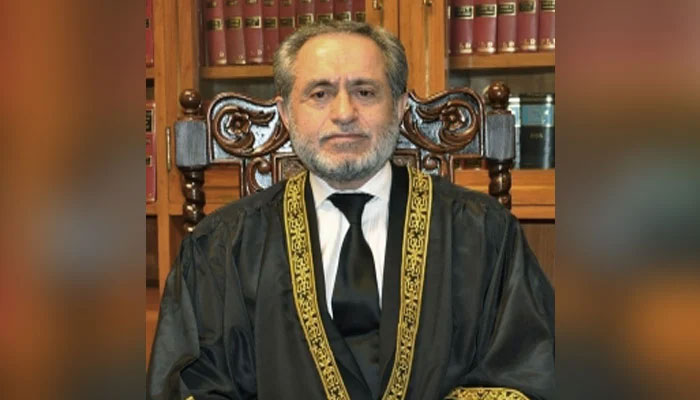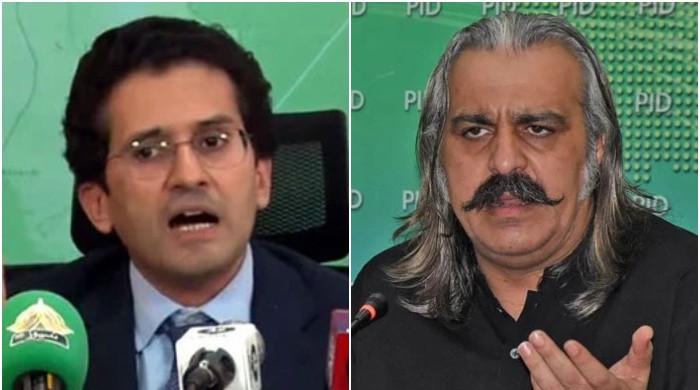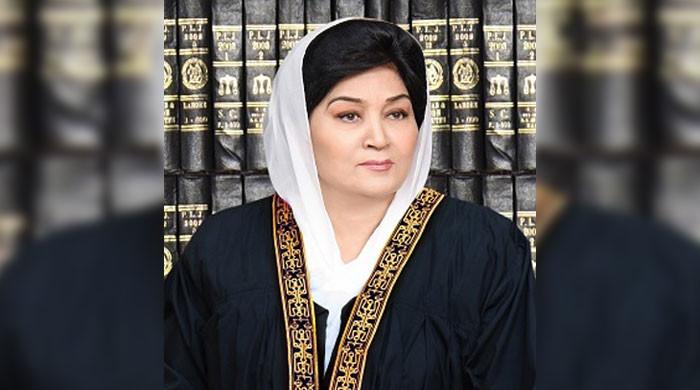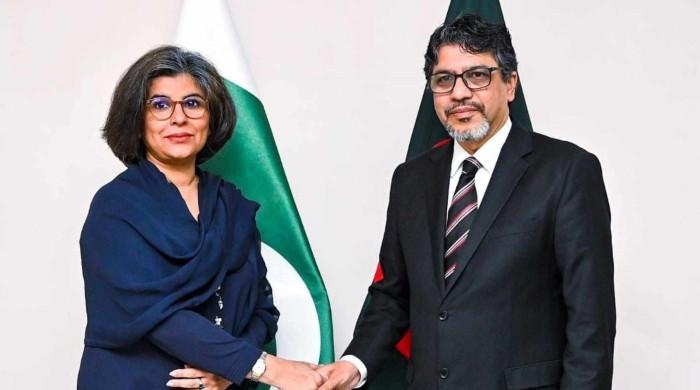SC judge questions military courts' powers in civilian trials case
Justice Muhammad Ali Mazhar says Army Act applied when civilians incited military personnel
February 04, 2025

- Justice Hilali speculates if Zia apologised to FB Ali.
- Salman Akram Raja presents arguments today.
- Apex court adjourns civilian trials case until Feb 10.
ISLAMABAD: Supreme Court's Justice Jamal Khan Mandokhail questioned the scope of military courts' authority under the Army Act on Monday.
A seven-member constitutional bench, led by Justice Amin-Ud-Din Khan, was hearing the intra-court appeal against the military trials of civilians, during which senior lawyer Salman Akram Raja presented arguments on behalf of the convicted defendant, Arzam Junaid.
During the hearing, Raja referred to the Brigadier (retd) FB Ali case, saying that the decision was based on the 1962 Constitution, which only allowed civilians' trial in military courts if fundamental rights were ensured.
Justice Muhammad Ali Mazhar questioned how FB Ali, a civilian, was court-martialled under the same precedent.
Justice Mandokhail further raised a critical query: "What are the powers of military courts under the Army Act? Can a non-military person be tried solely on the basis of their crime?"
Raja explained that in the FB Ali case, discussions focused on Clause 2 (d)(i) of the Army Act, and the ruling acknowledged that the Act brought via a presidential ordinance could be reviewed with regard to basic rights.
However, it was also stated that such amendments were subject to judicial review under fundamental rights, he argued.
Justice Mandokhail further inquired about the definition of "nexus" in the FB Ali case. Raja responded that the term referred to the incitement of the armed forces and an explicit link between the crime and Pakistan's defence, which was interpreted in a way that implied a separate court could be formed for such cases.
Raja argued that if the court upheld Justice Ayesha Malik’s ruling on Article 10-A, it would strengthen their case. Similarly, if the court ruled that no special courts could be established outside Article 175(3), it would still support its stance.
He also cited an example from history, noting that FB Ali was sentenced by a military court under General Zia-ul-Haq. However, after Zia became army chief, he revoked Ali’s sentence, leading to Ali later joining the Canadian Army.
Justice Mandokhail remarked that Zia might have later realised his initial decision was wrong, while Justice Musarrat Hilali even speculated whether Zia had apologised to FB Ali.
When asked about the 1962 Constitution by Justice Hilali, Raja noted that it began with Field Marshal Ayub Khan granting himself authority. He highlighted that during that period, fatwas were issued claiming Islam did not recognise fundamental rights.
He emphasised that the judiciary could always review laws under the lens of fundamental rights.
Justice Mandokhail questioned whether the court could use its powers under Article 187 in this appeal, to which Raja responded that the court always retained the power to ensure complete justice under Article 187.
Justice Mazhar observed that the Army Act applied when civilians incited military personnel. He questioned whether Article 10-A's right to a fair trial extended solely to civilians or also covered military personnel. Raja contended that Article 175(3) should benefit both civilians and military personnel equally.
Justice Hassan Azhar Rizvi raised concerns that foreign intelligence agencies sometimes exploit civilians, and the nullification of Army Act clauses 2(1)(d)(ii) and 2(1)(d)(ii) could hinder military trials of those working for hostile entities.
Raja countered this by proposing a comparative analysis of the Indian and Pakistani Army Acts.
He argued that Pakistan's system should not allow a scenario where an SHO acts as a judge, an SP hears the appeal, and an IG validates the decision.
He pointed out that in India, military trial appeals go to a tribunal, which can also grant bail, ensuring a fair trial process.
Justice Mazhar then questioned whether India's Army Act included clauses 22(1)(d)(i) and 22(1)(d)(ii). Raja admitted they were not part of Indian law, prompting Mazhar to dismiss the comparative analysis as irrelevant.
Justice Amin-Ud-Din reiterated that Pakistan and India had separate legal systems. The apex court, after hearing today's arguments, adjourned the case until 10 February.











